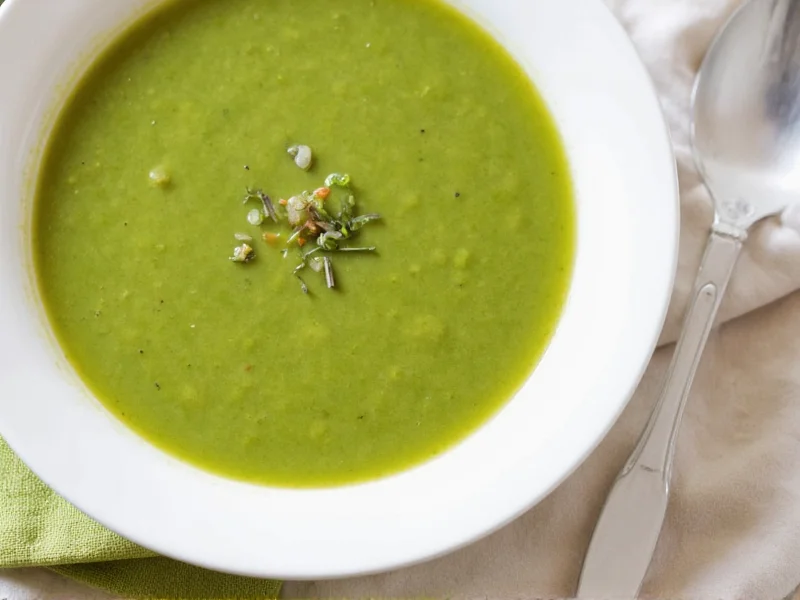Leek soup represents one of the most elegant yet simple comfort foods across multiple culinary traditions. This versatile preparation transforms the humble leek—a member of the allium family—into a sophisticated dish that can serve as either a light meal or an elegant starter. Understanding how to make traditional leek soup properly separates an ordinary preparation from an extraordinary culinary experience.
The Historical Roots of Leek Soup
Leeks have been cultivated for over 4,000 years, with evidence of their use in ancient Egyptian, Greek, and Roman cuisines. The Welsh even adopted the leek as their national symbol after a battlefield victory where soldiers wore leeks to distinguish themselves. Leek soup evolved as a practical way to use this hardy vegetable, particularly during winter months when fresh produce was limited. French cuisine refined the preparation into what many consider the classic version—potage parmentier—named after Antoine-Augustin Parmentier, who championed potato cultivation in France.
Nutritional Profile and Health Benefits
Leek soup offers significant nutritional advantages that contribute to its enduring popularity. Leeks themselves contain vitamins A, C, and K, along with manganese, iron, and dietary fiber. When prepared properly without excessive cream or butter, leek soup becomes a low-calorie, nutrient-dense option that supports digestive health and provides antioxidant benefits.
| Nutrient | Per Serving (1 cup) | Daily Value % |
|---|---|---|
| Calories | 120 | 6% |
| Fiber | 3g | 12% |
| Vitamin K | 35mcg | 29% |
| Vitamin C | 12mg | 13% |
Essential Components of Authentic Leek Soup
The magic of how to make traditional leek soup properly lies in understanding its fundamental components. Many home cooks make the mistake of treating leeks like onions, subjecting them to high heat that brings out bitterness rather than sweetness. The best leek soup recipe for beginners emphasizes gentle cooking techniques and proper preparation.
Leek Selection and Preparation
Choose leeks with crisp, dark green tops and firm white bases. Medium-sized leeks (about 1 inch in diameter) typically offer the best balance of flavor and texture. The critical step of how to clean leeks properly for soup cannot be overstated—leeks grow in sandy soil and trap grit between their layers. Slice leeks first, then soak thoroughly in cold water, allowing sediment to settle before draining.
Broth Considerations
While chicken broth creates a traditional flavor profile, vegetable broth works equally well for vegetarian versions. The broth should complement, not overpower, the delicate leek flavor. Avoid overly salty or strongly flavored broths that would mask the leek's natural sweetness.
Classic Leek Soup Recipe
This straightforward preparation yields a velvety soup that showcases the leek's natural flavor. For those seeking the best leek soup recipe for beginners, this method provides reliable results with minimal equipment.
Ingredients
- 1.5 lbs leeks (about 4 medium), cleaned and sliced
- 2 tbsp unsalted butter or olive oil
- 1 medium potato, peeled and diced
- 4 cups good quality broth (chicken or vegetable)
- 1 bay leaf
- Salt and white pepper to taste
- Optional: 1/2 cup heavy cream or dairy-free alternative
Step-by-Step Preparation
- Clean leeks thoroughly by slicing, then soaking in cold water to remove grit
- Melt butter in a large pot over medium-low heat
- Add leeks and cook slowly for 15-20 minutes until soft but not browned
- Add potato, broth, and bay leaf; bring to a gentle simmer
- Cover and cook for 25-30 minutes until vegetables are tender
- Remove bay leaf and puree with an immersion blender until smooth
- Season with salt and white pepper to taste
- For creamy version, stir in cream just before serving
Variations for Different Dietary Needs
Leek soup adapts beautifully to various dietary requirements while maintaining its essential character. For those exploring healthy leek and potato soup preparation, consider these adaptations:
- Vegan option: Substitute butter with olive oil and omit cream or use coconut milk
- Low-carb version: Omit potato and add cauliflower for creaminess
- Gluten-free assurance: Verify broth is certified gluten-free
- Protein boost: Add white beans after pureeing for additional protein
Serving Suggestions and Pairings
Understanding what to serve with leek soup enhances the dining experience. The soup's delicate flavor pairs beautifully with crusty bread for dipping, a simple green salad, or as a starter before heartier main courses. For an elegant presentation, garnish with a drizzle of cream, fresh chives, or a sprinkle of freshly cracked pepper.
Troubleshooting Common Leek Soup Issues
Even experienced cooks encounter challenges with leek soup preparation. Here's how to address frequent problems:
- Bitter taste: Results from overcooking or using high heat; cook leeks gently over medium-low
- Gritty texture: Inadequate cleaning; always soak sliced leeks in cold water
- Too thin: Add more potato before blending or reduce liquid by simmering uncovered
- Too thick: Gradually add additional broth until desired consistency is reached
Storage and Reheating Guidelines
Leek soup maintains excellent quality when stored properly. Follow these leek soup storage and reheating tips for optimal results:
- Cool soup completely before storing
- Refrigerate in airtight containers for up to 4 days
- Freeze in portion-sized containers for up to 3 months
- Reheat gently over medium-low heat, stirring occasionally
- For frozen soup, thaw overnight in refrigerator before reheating
Perfecting Your Leek Soup Technique
Mastery of leek soup preparation comes from understanding the vegetable's unique properties. Unlike onions, leeks contain less sulfur compounds, resulting in a milder, sweeter flavor when cooked properly. The key to creamy leek soup without dairy lies in the potato content and thorough blending. Professional chefs often sweat leeks in butter for 20-25 minutes to develop maximum flavor without caramelization.











 浙公网安备
33010002000092号
浙公网安备
33010002000092号 浙B2-20120091-4
浙B2-20120091-4